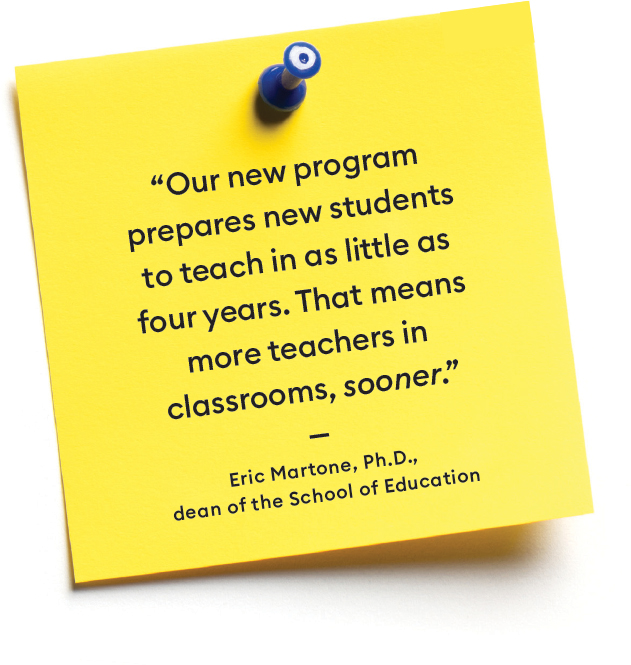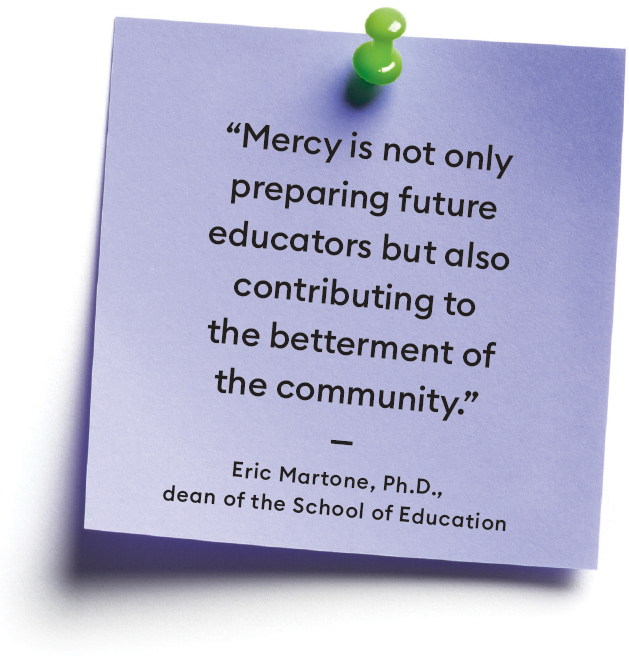

Fast Track to the Classroom
How Mercy is meeting the nation's growing demand for teachers.
The looming crisis begs one to ask: How will New York support and sustain the next generation of teachers?
To answer this vital question, Mercy University is poised to launch two new undergraduate programs in education. A Bachelor of Science in Early Childhood and Childhood Education, with concentration in science, technology, engineering and mathematics or STEM, and a “4+1” combined bachelor’s and master’s degree designed to create dual certified teachers in special education and early childhood, childhood or adolescent education. Both are enrolling for fall 2024.

A key feature of the 4+1 BS/MS program in teaching students with disabilities and early childhood, childhood or adolescent education is that it allows students to take 15 graduate education credits as part of the undergraduate degree. These credits can be applied to both bachelor’s and master’s degrees.This streamlines the teacher preparation program and enables students to earn the necessary credentials in less time and for a lower cost than is typical for a master’s degree, which is required for maintaining certification as a teacher. Best of all, Martone said, “Students have four years to decide on which MS option they prefer to pursue for the ‘+1’ year. These programs offer the most flexibility, with more choices in how you learn and more options after you graduate.”
Until now, the quickest way to obtain teaching credentials at Mercy has taken five years, followed by additional certifications. “Our new program prepares new students to teach in as little as four years. That means more teachers in classrooms, sooner,” Martone said. He added that Mercy’s well-established relationships with elementary and secondary schools across the region provide a host of opportunities for student teaching as well as the potential for jobs right after graduation.
Enrollment in the two programs is relatively smooth for students transferring or changing majors, especially if they have 60 credits or less. “We’re also working on several articulation agreements with other colleges as incentives for releasing some of their students to attend Mercy without losing credits,” Martone said.

The new programs create ongoing opportunities for earning multiple certificates that address a variety of district needs. With the added incentives of continued support and new certification pathways, program graduates can look forward to continuing their educational journey with Mercy for as long as they need.
Mercy’s nationally recognized programs in education are best known for small class sizes, skilled mentoring and stellar clinical and fieldwork experiences. “We believe our two new bachelor’s degrees will be a huge draw for students interested in teaching. Mercy is not only preparing future educators but also contributing to the betterment of the community,” Martone said. “Think of the difference they can make in the lives of young children and their families.”
